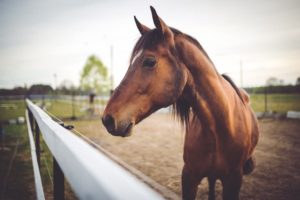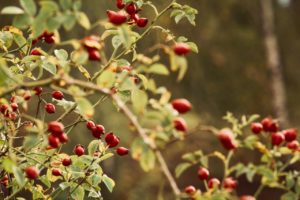Feed Supplements for Horses – Are those Necessary?

The necessity of feed supplements for horses is widely debated, some claiming they don’t provide any supplements because their basic feeding regime is sufficient. Some report that they don’t experience any effect. At the same time, many horse owners provide their horses supplements for various reasons based on the fact that they experience that the supplements actually make a big difference. In recent years, research on feed supplements has exploded and new reports arrive weekly.
Feed supplements has a place in modern horse management
The ancestors of our modern horses lived in large plains where they could choose between different kinds of grass. They also searched for and ate nutritious herbs, bark and roots. They wandered around in herds for many hours each day in search of food and water and cantered off if feeling threatened. The horses of today live a very different life from that of their ancestors, and it’s in our modern horse management that feed supplements have a clear place.
Today, very few horses have access to extensive paddocks with varied nature over fields that are not depleted by over grazing. Nor have many horses access to several hours of walking and small quantities of fresh food during the most hours of the day. Today’s horses are in most cases stabled for many hours and eat forage built up of a smaller range of grasses and different grains. They are ridden and driven, they are trained and they are expected to perform, some on the same level as elite athletes, no matter the level, we want their large bodies to last as long as possible.
Feed supplements for horses is a support
 Feed supplements are not miracle substances, the foundation for a healthy and horse that can perform is always in the horse management as a whole. Things that affect the horse’s general condition include, for example, feeding regime, exercise, contact with other horses, hygienic water, fitted equipment, daily hours outside etc. Horse feed supplements should be seen as a complement to all things involved in horse health and are primarily developed to cover the needs that the basic feeding regime don’t cover or cannot fulfill. Examples of necessary nutritional supplements for horses may be substances such as sodium and magnesium that are consumed at a higher rate by intensive training than the basic feeding regime can replace them. Or that the horse need another source of MSM, organic sulphur, when the access to fresh grass is low. The horse may also be at a stage, age or at an exercise level where support for normal biological functions is required.
Feed supplements are not miracle substances, the foundation for a healthy and horse that can perform is always in the horse management as a whole. Things that affect the horse’s general condition include, for example, feeding regime, exercise, contact with other horses, hygienic water, fitted equipment, daily hours outside etc. Horse feed supplements should be seen as a complement to all things involved in horse health and are primarily developed to cover the needs that the basic feeding regime don’t cover or cannot fulfill. Examples of necessary nutritional supplements for horses may be substances such as sodium and magnesium that are consumed at a higher rate by intensive training than the basic feeding regime can replace them. Or that the horse need another source of MSM, organic sulphur, when the access to fresh grass is low. The horse may also be at a stage, age or at an exercise level where support for normal biological functions is required.
All horses are different, some are hard feeders, others heal slowly, some have poor hoof growth or weak hoof horn. There are horses that have low stamina or need longer time to recover after exercise. It’s not uncommon with mares that are very hormonal or have difficulties getting pregnant. The examples of specific situations where feed supplements can be a help and a sometimes necessary addition to the basic feeding regime are many.
Feed supplements and what the research says
When we talk about the horse’s basic feed regime and its basic needs of minerals and vitamins needs, it’s clear, Swedish University of agriculture has developed a comprehensive guide that is found here.. However, the basic need is individual and strongly linked to where in life the horse is, what the sex it is and how much it works. Although much more research is needed, there is much to be learned about the substances normally used in feed supplements. A good tip is to read but to be selective in what you read, texts from veterinarians and recognized researchers are often preferable over popular science. Below are some examples of common feed supplements for horses that are well-supported by research.
MSM
 In one of the examples aboves, MSM – organic sulfur, was mentioned. The natural source of MSM for horses is grass, but access to quality grass is limited for most horses, especially winter time. Hay contains very little MSM and haylage even less because the substance is sensitive to both drying and preservation. Thus, there may be a need to provide additional MSM to the basic feeding regime.
In one of the examples aboves, MSM – organic sulfur, was mentioned. The natural source of MSM for horses is grass, but access to quality grass is limited for most horses, especially winter time. Hay contains very little MSM and haylage even less because the substance is sensitive to both drying and preservation. Thus, there may be a need to provide additional MSM to the basic feeding regime.
The benefits of fulfilling the MSM quota are strongly supported by research. For example, it has been shown that MSM is positively associated with strong hoof horn (Ley et al., 1998). Results show that MSM can suppress exercise-induced oxidative stress by attenuating free radicals and suppressing the amount of carbon monoxide and carbon dioxide in the blood (Marañón et al., 2008). MSM, in other words, works like a powerful antioxidant and many that supply MSM experience both shortened warm-up time and a horse that is both smoother and more agile.
In a study of race horses, Riegel (2001) showed that horses fed MSM showed lower levels of inflammation in muscles, performed better on the race track, had faster recovery and better appetite. Faster hoof growth and shinier coat was also observed although this was not measured scientifically in the study. Organic sulfur is also necessary in the formation of connective tissue such as cartilage and important for the body to benefit from glucosamine, biotin and many other important nutrients. We have more information on MSM here.
Glucosamine
Glucosamine is an endogenous substance, which means that the horse itself produces glucosamine. Glucosamine production decreases with increasing age and exercise without sufficient recovery periods can lead to that the endogenous glucosamine is consumed at a rate that exceeds the body’s production capacity.
Giving horses glucosamine both in support of already injured joints and in preventive purposes is common and often recommended by veterinarians. In Sweden Glucosamine is regulated as a medicine for humans and restricted with 96 hours of competition withdrawal for horses.
There has been a lot of research on glucosamine around both horses and humans. In 2008 it was clarified that glucosamine sulfate, and not glucosamine hydrochloride, as previously thought, has the highest bio-availability. What was found was higher amounts of glucosamine in the joint fluid when given glucosamine sulfate (Meulyzer et al., 2008). Since 2009, several studies have been published that show effects on joints and stiffness in joints. Murray (et al.) conducted two randomized blind studies with control groups given placebo in 2013 and 2014. The studies administered an supplement containing glucosamine and MSM orally to horses. The data was collected through several evaluation methods. In both studies, positive results were shown with reduced lameness and increased mobility of the horses included in the study both in freedom, during lunging and under rider. You will find more information about glucosamine and its role in joint health here.
Magnesium
Magnesium is important for the horse’s skeleton, muscles, blood vessels, blood circulation and ability to handle stress reactions. Magnesium also acts as a stabilizer in membrane, protein and DNA. Most people know that when the horse is working and sweating, the horse loses salt which needs to be replaced. Something less known is that the horse also loses magnesium when sweating. In addition to the daily loss of magnesium via feaces and urine, the loss of magnesium via sweat also needs to be replaced. The results of a study at SLU by Johansson (2008-2009) indicate that there is reason to suspect that magnesium deficiency can lead to blood vessels losing elasticity and that the risk of major blood vessel rupture increases with magnesium deficiency. Magnesium deficiency in horses is not rare, but the deficiency is often not detected before it is more advanced (Johansson et al., 2003). You can read more about magnesium deficiency and its symptoms here.
Contrary to what is many times claimed, there is a lot of research that supports magnesium to reduce over reactions and provide better ability to handle stressful situations in a wide range of species. In a new study published in the Journal of Equine Veterinary Science earlier this year, Pearson et. al. (2017) found that a single magnesium dose may have a calming effect in stressful everyday situations for horses.
How to chose the right feed supplement?
 There is a wide range of different supplements, so how do you choose among these? Most feed supplements for horses have a specific focus. Some is aimed at better hooves, some towards joints, others towards mental balance or towards general well-being. Which supplement that are chosen should be determined by the horse’s needs and in which area or areas the horse need additional support or preventive assistance. When choosing a brand, it is important to look at the quality of the ingredients in the individual products. If you don’t choose a product with bio-available content and with enough active content, you’ll throw your money away. Many substances present in feed supplements come in several varieties that are more or less suitable for the horse’s biology and thus more or less available for absorption by the horse’s body. Other things that play a significant roles is how high the proportion of active substances is, as well as the the production process/cultivation and after-treatment of the raw materials. Adding good substances in a larger amounts of course costs more than using low-quality substances in a smaller amounts. You are more than welcome to contact us if you have questions about choosing feed supplement.
There is a wide range of different supplements, so how do you choose among these? Most feed supplements for horses have a specific focus. Some is aimed at better hooves, some towards joints, others towards mental balance or towards general well-being. Which supplement that are chosen should be determined by the horse’s needs and in which area or areas the horse need additional support or preventive assistance. When choosing a brand, it is important to look at the quality of the ingredients in the individual products. If you don’t choose a product with bio-available content and with enough active content, you’ll throw your money away. Many substances present in feed supplements come in several varieties that are more or less suitable for the horse’s biology and thus more or less available for absorption by the horse’s body. Other things that play a significant roles is how high the proportion of active substances is, as well as the the production process/cultivation and after-treatment of the raw materials. Adding good substances in a larger amounts of course costs more than using low-quality substances in a smaller amounts. You are more than welcome to contact us if you have questions about choosing feed supplement.
At Mustcare Pro we work with good raw materials, accompanied by a data sheets with high traceability that shows where and how the raw materials have been cultivated and that they have been handled correctly to maintain the maximum amount of active substances. Furthermore, it is possible to look at the data sheets with high traceability and see if the ingredients were grown on non-toxic soil without fertilizers and have not come into contact with contaminants. In addition to our high standards of controlling the raw materials, we also test our ingredients continuously to ensure that they maintain the quality we promise. When talking about bio-availability and the benefits of feed supplements, we believe that the best thing is to choose as naturally and organically as possible and stay away from added sugars, dyes and preservatives. Another thing we believe is important is to choose feed supplements for horses produced with respect to the environment.
Photos:
Header: Brian Musial. Text photos by Laila Klinsmann, www.kaboompics.com & Tom Swinnen
Sources:
Ley, Pleasant & Dunnington. 1998. Effects of season and diet on tensile strength and mineral content of the equine hoof wall.
Equine Veterinary Journal
Marañón, et. al. 2008. The effect of methyl sulphynol methane supplementation on biomarkers of oxidative stress in sport horses following jumping exercise. Acta Veterinaria Scandinavia.
Riegel. 2001. The correlation on training times, thermographic and serum chemistry levels to provide evidence as to the effectiveness of the use of oral alavis MSM (methylsulfonylmethane) upon the musculature of the racing standardbred. Carolwood corporation. Meulyzer, Vachon, Beaudry, Vinardell, Richard, Beauchamp & Laverty. 2008. Comparison of pharmacokinetics of glucosamine and synovial fluid levels following administration of glucosamine sulphate or glucosamine hydrochloride.
Murray, Adams, Walker, Tranquille, Copeman, Spear, Frost & Marlin. 2013. To Determine the Effect of An Oral Joint Supplement on Orthopaedic, Physiotherapy and Handler Evaluation Scores in Horses.
Murray, Walker, Tranquille, Adams & Frost. 2014. Effect of an Oral Joint Supplement on Orthopaedic Evaluation Scores and Limb Kinematics
Johansson. 2008-9. Kan brist på natrium och magensium hos häst orsaka kardiovaskulära förändringar: finns det några enkla markörer? SLU
Johansson, Gardner, Jones, Fuquay, Reagan & Levine. 2003. Hypomagnesemia in Hospitalized Horses. Journal of Veterinary Internal Medicine.
Pearson & MacNicol (2017) Acute Effects of a Single-Dose Nutritional Product on Stress Response and Task Completion in Horses.


